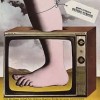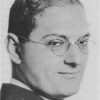Now Scripture enjoins nothing except charity, and condemns nothing except lust, and in that way fashions the lives of men.
[Non autem praecipit Scriptura nisi caritatem, nec culpat nisi cupiditatem, et eo modo informat mores hominum.]
Augustine of Hippo (354-430) Christian church father, philosopher, saint [b. Aurelius Augustinus]
On Christian Doctrine [De Doctrina Christiana], Book 3, ch. 10 / § 15 (3.10.15) (AD 397) [tr. Shaw (1858)]
(Source)
On how people treat Scripture as literal when it agrees with their and their culture's judgment, and figurative when not.
(Source (Latin)). Alternate translations:
But Scripture teaches nothing but charity, nor condemns anything except cupidity, and in this way shapes the minds of men.
[tr. Robertson (1958)]
Scripture enjoins nothing but love, and centures nothing but lust, and moulds men's minds accordingly.
[tr. Green (1995)]
Quotations about:
scripture
Note not all quotations have been tagged, so Search may find additional quotes on this topic.
But the ambiguities of metaphorical words, about which I am next to speak, demand no ordinary care and diligence. In the first place, we must beware of taking a figurative expression literally. For the saying of the apostle applies in this case too: “The letter killeth, but the spirit giveth life.”
[Sed verborum translatorum ambiguitates, de quibus deinceps loquendum est, non mediocrem curam industriamque desiderant. Nam in principio cavendum est ne figuratam locutionem ad litteram accipias. Et ad hoc enim pertinet quod ait Apostolus: Littera occidit, spiritus autem vivificat.]Augustine of Hippo (354-430) Christian church father, philosopher, saint [b. Aurelius Augustinus]
On Christian Doctrine [De Doctrina Christiana], Book 3, ch. 5 / § 9 (3.5.9) (AD 397) [tr. Shaw (1858)]
(Source)
Quoting 2 Cor. 3:6.
(Source (Latin)). Alternate translations:
But the ambiguities of figurative words, which are now to be treated, require no little care and industry. For at the outset you must be very careful lest you take figurative expressions literally. What the apostle says pertains to this problem: "For the letter killeth, but the spirit quickeneht."
[tr. Robertson (1958)]
But the ambiguities of metaphorical words, about which I must now speak, require no ordinary care and attention. To begin with, one must take care not to interpret a figurative expression literally. What the apostle says is relevant here: "the letter kills but the spirit gives life."
[tr. Green (1995)]
For the only reason (I came to think) for God to inspire the Bible would be so that his people would have his actual words; but if he really wanted people to have his actual words, surely he would have miraculously preserved those words, just as he had miraculously inspired them in the first place.
Bart D. Ehrman (b. 1955) American Biblical scholar, author
Misquoting Jesus, “Conclusion” (2005)
(Source)
How does it help us to say that the Bible is the inerrant word of God if in fact we don’t have the words that God inerrantly inspired, but only the words copied by the scribes — sometimes correctly but sometimes (many times!) incorrectly? What good is it to say that the autographs (i.e., the originals) were inspired? We don’t have the originals! We have only error-ridden copies, and the vast majority of these are centuries removed from the originals and different from them, evidently, in thousands of ways.
Bart D. Ehrman (b. 1955) American Biblical scholar, author
Misquoting Jesus, Introduction (2005)
(Source)
On the subject of Biblical texts and examples to why you can’t do certain things with your body that you wish to, I find that absolutely absurd. I’ve always been extremely uncomfortable with the idea in any society that belief is based on revealed truth, that’s to say on a text like a Bible or a Qur’an, or whatever it is. It seems to me that the greatness of our culture, for all its incredible faults, is that we have grown up on the Greek ideal of discovering the truth, discovering by looking around us, by empirical experiment, by the combination of the experience of generations of ancestors who have contributed to our sum knowledge of the way the world works, and so on. And to have that snatched away and to be told what to think by a book, however great it may be in places, this is a book that says you can sell your daughter into slavery, it’s a book that bans menstruating women from within miles of temples. The fact that it also says that for one man to lie with another man is an abomination, is no more made relevant or important than the fact that you can’t eat shellfish.
Stephen Fry (b. 1957) British actor, writer, comedian
An Evening with Callow & Fry, Norwich (2003-12)
(Source)
[Holding the Holy Hand Grenade of Antioch]
KING ARTHUR: How does it — um — how does it work?
SIR LANCELOT: I know not, my liege.
KING ARTHUR: Consult the Book of Armaments.
BROTHER MAYNARD: Armaments, chapter two, verses nine through twenty-one.
CLERIC: [reading] And Saint Attila raised the hand grenade up on high, saying, “O Lord, bless this thy hand grenade, that with it thou mayst blow thine enemies to tiny bits, in thy mercy.” And the Lord did grin. And the people did feast upon the lambs, and sloths, and carp, and anchovies, and orangutans, and breakfast cereals, and fruit bats, and large chu–“
BROTHER MAYNARD: Skip a bit, Brother.
CLERIC: And the Lord spake, saying, “First shalt thou take out the Holy Pin. Then shalt thou count to three, no more, no less. Three shall be the number thou shalt count, and the number of the counting shall be three. Four shalt thou not count, neither count thou two, excepting that thou then proceed to three. Five is right out. Once the number three, being the third number, be reached, then lobbest thou thy Holy Hand Grenade of Antioch towards thy foe, who, being naughty in My sight, shall snuff it.”
BROTHER MAYNARD: Amen.
ALL: Amen.
KING ARTHUR: Right. [pulls pin] One … two … five!
GALAHAD: Three, sir.
KING ARTHUR: Three! [throws grenade]
I have run into this difficulty with Scripture in the past. It tells you enough to get interested, but never enough to be of any immediate use. It is as though the author gets his kicks by tantalizing.
There are thousands of things in the Scriptures that everybody believes. Everybody believes the Scriptures are right when they say, “Thou shalt not steal” — everybody. And when they say “Give good measure, heaped up and running over,” everybody says, “Good!” So when they say “Love your neighbor,” everybody applauds that.
Suppose a man believes that, and practices it, does it make any difference whether he believes in the flood or not? Is that of any importance? Whether a man built an ark or not — does that make the slightest difference? A man might deny it and yet be a very good man. Another might believe it and be a very mean man. Could it now, by any possibility, make a man a good father, a good husband, a good citizen? Does it make any difference whether you believe it or not?
Does it make any difference whether or not you believe that a man was going through town and his hair was a little short, like mine, and some little children laughed at him, and thereupon two bears from the woods came down and tore to pieces about forty of these children? Is it necessary to believe that? Suppose a man should say, “I guess that is a mistake. They did not copy that right. I guess the man that reported that was a little dull of hearing and did not get the story exactly right.” Any harm in saying that? Is a man to be sent to the penitentiary for that? Can you imagine an infinitely good God sending a man to hell because he did not believe the bear story?
Robert Green Ingersoll (1833-1899) American lawyer, agnostic, orator
Speech to the Jury, Trial of C. B. Reynolds for Blasphemy, Morristown, New Jersey (May 1887)
(Source)
It ain’t those parts of the Bible that I can’t understand that bother me, it is the parts that I do understand.
Mark Twain (1835-1910) American writer [pseud. of Samuel Clemens]
(Spurious)
This is not found in any of Twain's printed works, and the first version of it appeared in 1915, after Twain's death. The folksy use of "ain't" doesn't show up until the mid-1970s. For more discussion, see here.
If you suspect that my interest in the Bible is going to inspire me with sudden enthusiasm for Judaism and make me a convert of mountain‐moving fervor and that I shall suddenly grow long earlocks and learn Hebrew and go about denouncing the heathen — you little know the effect of the Bible on me. Properly read, it is the most potent force for atheism ever conceived.
Isaac Asimov (1920-1992) Russian-American author, polymath, biochemist
Quoted in Janet Jeppson Asimov, Notes for a Memoir: On Isaac Asimov, Life, and Writing (2006)
(Source)
It ain’t necessarily so,
It ain’t necessarily so —
De t’ings dat you li’ble
To read in de Bible —
It ain’t necessarily so.Ira Gershwin (1896-1983) American lyricist [b. Israel Gershowitz]
“It Ain’t Necessarily So,” Porgy and Bess, Act 2, sc. 2 (1935)
(Source)
In practice, people choose the book considered sacred by the community in which they are born, and out of that book they choose the parts they like, ignoring the others. At one time, the most influential text in the Bible was: “Thou shalt not suffer a witch to live.” Nowadays, people pass over this text, in silence if possible; if not, with an apology. And so, even when we have a sacred book, we still choose truth whatever suits our own prejudices.
Bertrand Russell (1872-1970) English mathematician and philosopher
Unpopular Essays (1950)
Quoting Exodus 22:18.
So you end up with divergent sects reading from subtly different versions of the same book — which in turn is a third-generation translation of something which might have been the original codification of an oral tradition — and all convinced that their interpretation overrides such minor obstacles as observable reality. Which still wouldn’t be a problem except that some of the readers think the books are an instruction manual rather than a set of educational parables, a blueprint instead of a metaphor.
The Bible is a sealed book to him who has not first heard its laws from his soul.
Ralph Waldo Emerson (1803-1882) American essayist, lecturer, poet
“Trust Yourself,” Sermon 90 (1830)
(Source)
Sermon on Matthew 16:26.
Cosmogony and cosmology have always aroused great interest among peoples and religions. The Bible itself speaks to us of the origin of the universe and its make-up, not in order to provide us with a scientific treatise, but in order to state the correct relationships of man with God and with the universe. Sacred Scripture wishes simply to declare that the world was created by God, and in order to teach this truth it expresses itself in the terms of the cosmology in use at the time of the writer. The Sacred Book likewise wishes to tell men that the world was not created as the seat of the gods, as was taught by other cosmogonies and cosmologies, but was rather created for the service of man and the glory of God. Any other teaching about the origin and make-up of the universe is alien to the intentions of the Bible, which does not wish to teach how heaven was made but how one goes to heaven.
Pope John Paul II (1920-2005) Polish-born Catholic Pontiff (1978-2005) [b. Karol Józef Wojtyła]
“Cosmology and Fundamental Physics,” Discourse to the Pontifical Academy of Science (3 Oct 1981)
(Source)
ANTONIO: Mark you this, Bassanio,
The devil can cite Scripture for his purpose.
An evil soul, producing holy witness,
Is like a villain with a smiling cheek,
A goodly apple rotten at the heart.
O, what a goodly outside falsehood hath!William Shakespeare (1564-1616) English dramatist and poet
Merchant of Venice, Act 1, sc. 3, l. 106ff (1.3.106-111) (1597)
(Source)
Do not believe in anything simply because you have heard it. Do not believe in anything simply because it is spoken and rumored by many. Do not believe in anything simply because it is found written in your religious books. Do not believe in anything merely on the authority of your teachers and elders. Do not believe in traditions because they have been handed down for many generations. But after observation and analysis, when you find that anything agrees with reason and is conducive to the good and benefit of one and all, then accept it and live up to it.
Cave ab homine unius libri.
[Beware of anyone who has just one book.]
(Other Authors and Sources)
Latin proverb
Sometimes attributed to Thomas Aquinas. See also George Herbert.
Clearly it is not Scripture that creates hostility to homosexuality, but rather hostility to homosexuality that prompts certain Christians to retain a few passages from an otherwise discarded law code. The problem is not how to reconcile homosexuality with scriptural passages, but rather how to reconcile the rejection and punishment of homosexuals with the love of Christ.
William Sloane Coffin, Jr. (1924-2006) American minister, social activist
The Courage to Love, ch. 5 (1982)
(Source)
“But the Great Plan can only be a tiny part of the overall ineffability,” said Crowley. “You can’t be certain that what’s happening right now isn’t exactly right, from an ineffable point of view.”
“It izz written!” bellowed Beelzebub.
“But it might be written differently somewhere else,” said Crowley. “Where you can’t read it.”
“In bigger letters,” said Aziraphale.
“Underlined,” Crowley added.
“Twice,” suggested Aziraphale.Terry Pratchett (1948-2015) English author
Good Omens, 6. “Saturday” (1990) [with Neil Gaiman]
(Source)



















